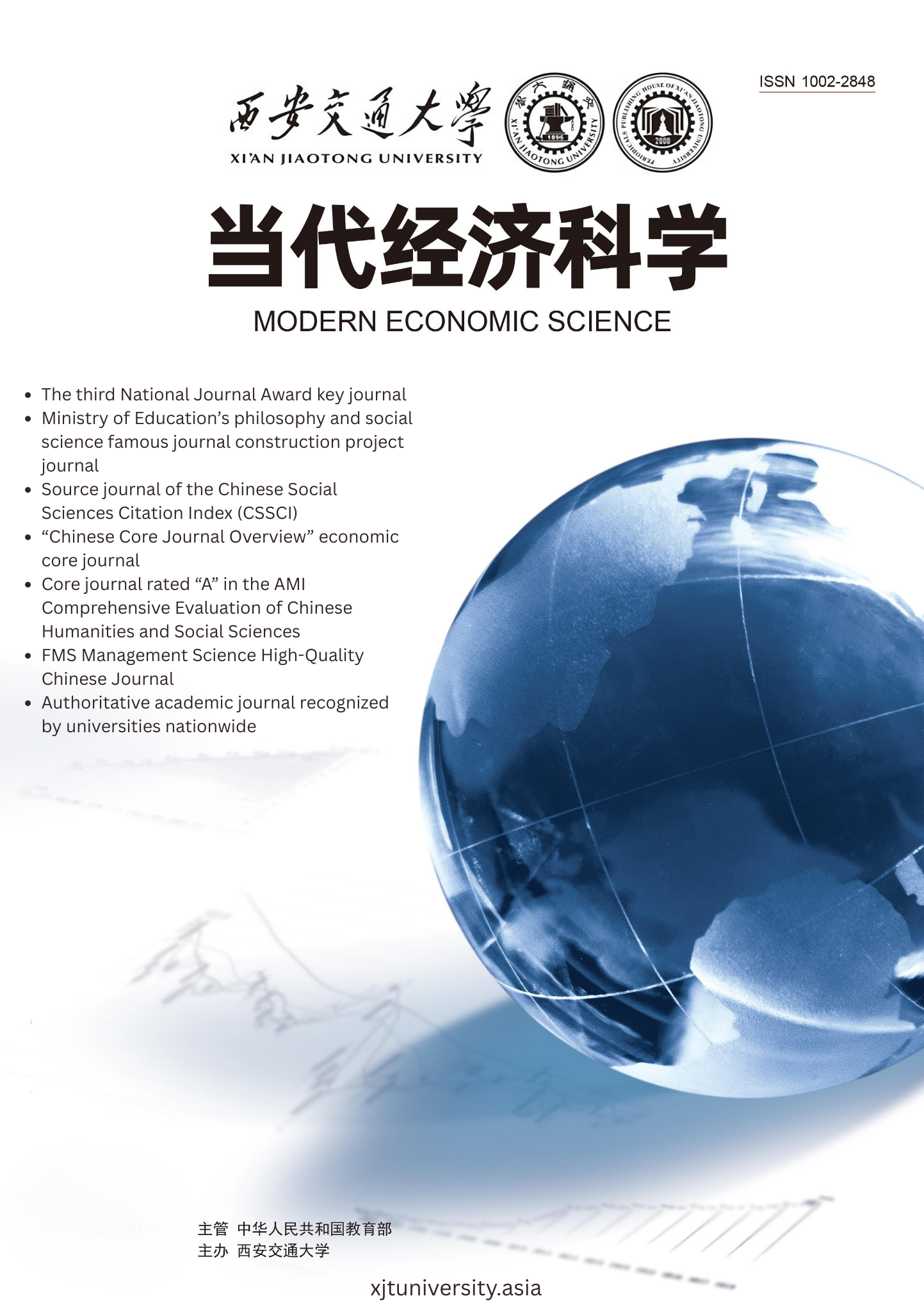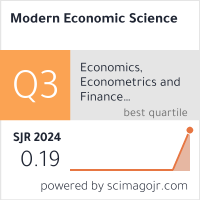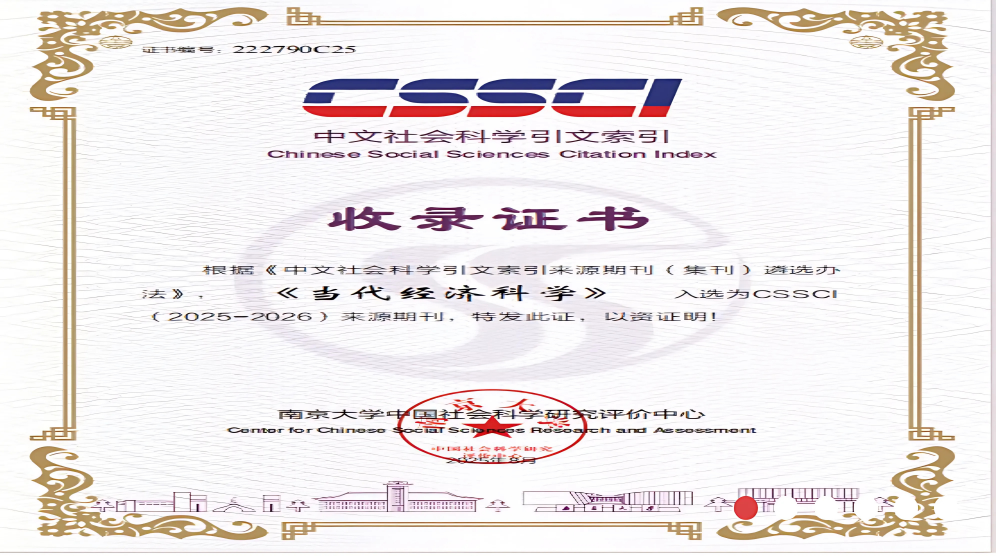National Low-carbon Policy Coordination and Low-carbon Transformation of China’s Industry
DOI:
https://doi.org/10.20069/gbxmm961Keywords:
low-carbon policy, low-carbon transformation of the industry, resource allocation, technological innovation, market competitionAbstract
Steadfast commitment to green, low-carbon, and high-quality development pathways, coupled with accelerating comprehensive green transformation across economic and social sectors, has become a central focus for governments, enterprises, and academia. While scholars have extensively examined whether national low-carbon policies promote economic green development, limited research exists on whether policy coordination can enhance the positive impacts of these policies on industrial low-carbon transformation.
This study investigates the impact and mechanisms of national low-carbon policy coordination on urban industrial low-carbon transformation using panel data from 285 prefecture-level cities spanning the period from 1994 to 2021. Our findings reveal that the national low-carbon city pilot policy alone shows no significant effect on industrial low-carbon transition, while the national low-carbon industrial park pilot policy independently demonstrates significant positive impact. Notably, when these two policies are coordinated, they generate a significantly stronger positive effect on industrial low-carbon transformation than either policy implemented in isolation.
Further analysis indicates that this synergistic effect operates primarily through two mechanisms: inhibiting human capital mismatch and capital misallocation, thereby improving resource allocation efficiency; and enhancing technological innovation. In regions with high levels of low-carbon industrial transformation, labor resource allocation plays a particularly significant role, while in regions with lower transformation levels, market competition effects are more prominent. Additionally, the positive effects of policy coordination are more pronounced in specific sectors (agriculture, forestry, animal husbandry, fishery, construction, wholesale and retail, and hospitality) and in central and western cities, as well as in mature and declining urban areas.
This research makes several contributions to existing literature. First, it addresses a significant gap by examining the synergistic effects between low-carbon policies rather than focusing solely on individual policy impacts. Using a difference-in-difference model with urban panel data, we isolate the net impact of policy coordination on China’s industrial low-carbon transformation, thereby expanding the literature on policy evaluation. Second, beyond confirming the effectiveness of policy synergy, we elucidate the internal mechanisms through which this coordination promotes industrial low-carbon transformation, providing feasible pathways for driving comprehensive green transformation. Finally, by examining differential impacts across industry types, resource city categories, and geographical locations, this study offers empirical evidence and theoretical support for understanding the effects of low-carbon policy coordination in contemporary China and informs future government policy formulation.
Downloads
References
[1] 邵帅, 尹俊雅, 范美婷, 等. 僵尸企业与低碳转型发展: 基于碳排放绩效的视角 [J]. 数量经济技术经济研究, 2022(10):89-108.
[2] 刘伟. 中国式现代化与低碳绿色发展 [J]. 学术月刊, 2023(1):39-47.
[3] Dukr L, Lip Z, Yan Z M. Do green technology innovations contribute to carbon dioxide emission reduction? Empirical evidence from patent data [J]. Technological Forecasting and Social Change, 2019, 146:297-303.
[4] 周小亮, 宋立. 中国工业低碳转型: 现实分析与政策思考 [J]. 数量经济技术经济研究, 2022(8):22-41.
[5] 张杰, 付奎, 刘炳荣. 数字经济如何赋能城市低碳转型: 基于双重目标约束视角 [J]. 现代财经(天津财经大学学报), 2022(8):3-23.
[6] 史丹, 李少林. 排污权交易制度与能源利用效率: 对地级及以上城市的测度与实证 [J]. 中国工业经济, 2020(9):5-23.
[7] 徐佳, 崔静波. 低碳城市和企业绿色技术创新 [J]. 中国工业经济, 2020(12):178-196.
[8] 韦东明, 顾乃华. 城市低碳治理与绿色经济增长: 基于低碳城市试点政策的准自然实验 [J]. 当代经济科学, 2021(4):90-103.
[9] 王锋, 葛星. 低碳转型冲击就业吗: 来自低碳城市试点的经验证据 [J]. 中国工业经济, 2022(5):81-99.
[10] 刘海英, 郭文琪. 碳排放权交易政策试点与能源环境效率: 来自中国287个地级市的实证检验 [J]. 西安交通大学学报(社会科学版), 2022(5):72-86.
[11] 余澜, 张兵兵, 闫志俊. 环境立法如何驱动城市低碳转型 [J]. 财经研究, 2022(9):18-31.
[12] Zhang W J, Hong M Y, Li J, et al. An examination of green credit promoting carbon dioxide emissions reduction: a provincial panel analysis of China [J]. Sustainability, 2021, 13(13):1-21.
[13] Calel R, Dechezleprêtre A. Environmental policy and directed technological change: evidence from the European carbon market [J]. Review of Economics and Statistics, 2016, 98(1):173-191.
[14] Yang Z B, Fan M T, Shao S, et al. Does carbon intensity constraint policy improve industrial green production performance in China? A quasi-DID analysis [J]. Energy Economics, 2017, 68:271-282.
[15] Hering L, Poncet S. Environmental policy and exports: evidence from Chinese cities [J]. Journal of Environmental Economics and Management, 2014, 68(2):296-318.
[16] 韩超, 崔敏. “双碳”目标约束下的高质量发展: 内在冲突、机遇与应对 [J]. 天津社会科学, 2022(4):83-92.
[17] 黄栋. 国家治理现代化中的政策协同创新 [J]. 求索, 2021(5):160-169.
[18] 赵晶, 迟旭, 孙泽君. “协调统一”还是“各自为政”: 政策协同对企业自主创新的影响 [J]. 中国工业经济, 2022(8):175-192.
[19] 柳卸林, 杨培培, 丁雪辰. 央地产业政策协同与新能源汽车产业发展: 基于创新生态系统视角 [J]. 中国软科学, 2023(11):38-53.
[20] 程龙, 唐恒. 环境政策与知识产权政策协同对绿色金融发展的影响研究 [J]. 管理学报, 2024(6):876-885.
[21] Cheng J H, Yi J H, Dai S, et al. Can low-carbon city construction facilitate green growth? Evidence from China’s pilot low-carbon city initiative [J]. Journal of Cleaner Production, 2019, 231:1158-1170.
[22] 宋弘, 孙雅洁, 陈登科. 政府空气污染治理效应评估: 来自中国“低碳城市”建设的经验研究 [J]. 管理世界, 2019(6):95-108.
[23] 朱光喜. 政策协同: 功能、类型与途径: 基于文献的分析 [J]. 广东行政学院学报, 2015(4):20-26.
[24] Porter M E, Van der Linde C. Toward a new conception of the environment-competitiveness relationship [J]. Journal of Economic Perspectives, 1995, 9(4):97-118.
[25] 陈诗一. 中国的绿色工业革命: 基于环境全要素生产率视角的解释(1980—2008) [J]. 经济研究, 2010(11):21-34.
[26] 鄢哲明, 杜克锐, 张宁. 可再生能源技术创新与碳减排: 基于地区经济发展不平衡视角 [J]. 环境经济研究, 2022(1):56-77.
[27] 李平, 简泽, 江飞涛. 进入退出、竞争与中国工业部门的生产率: 开放竞争作为一个效率增进过程 [J]. 数量经济技术经济研究, 2012(9):3-21.
[28] 侯建, 陈恒. 中国高专利密集度制造业技术创新绿色转型绩效及驱动因素研究 [J]. 管理评论, 2018(4):59-69.
[29] 余壮雄, 张婕, 董洁妙, 等. 综合保税区政策推动出口企业转型升级了吗? [J]. 统计研究, 2022(8):53-71.
[30] 张兵兵, 周君婷, 闫志俊. 低碳城市试点政策与全要素能源效率提升: 来自三批次试点政策实施的准自然实验 [J]. 经济评论, 2021(5):32-49.
[31] 白俊红, 刘宇英. 对外直接投资能否改善中国的资源错配 [J]. 中国工业经济, 2018(1):60-78.
Downloads
Published
Issue
Section
License
Copyright (c) 2025 Editorial Board of Modern Economic Science

This work is licensed under a Creative Commons Attribution-NonCommercial 4.0 International License.













